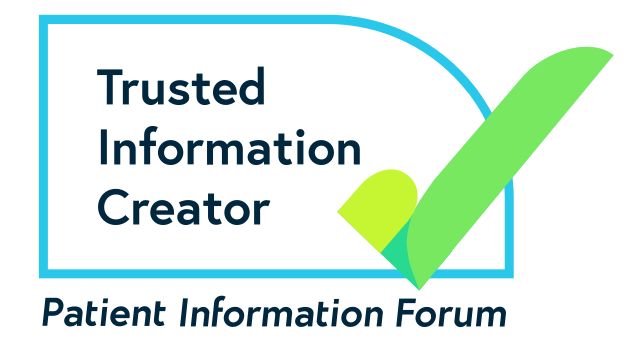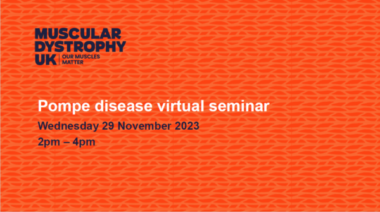A multi-disciplinary approach is important in not only managing the condition and symptoms but in improving wellbeing too. It involves different healthcare professionals working together.
Access to a healthcare team
People with Pompe disease should have access to a multi-disciplinary healthcare team to manage symptoms and treatments. Usually, the lead professional will be a metabolic specialist or a neurologist, and the team may also include cardiologists, respiratory specialists, physiotherapists, speech and language therapists, and dietitians. If you don’t have contact with a specialist doctor, speak to your GP about getting access.
Pompe disease is progressive and may require regular assessments of heart, breathing, and swallowing functions. Mobility support and respiratory care are key in long-term management of the condition.
Treatments
Disease-modifying treatments are available for Pompe disease, with enzyme replacement therapy (ERT) being the most common. ERT provides an artificial version of the GAA enzyme, which the body lacks in Pompe disease. It’s given through an intravenous (IV) infusion, typically every two weeks. ERT helps reduce the buildup of glycogen in the muscles and slows disease progression. While its effectiveness can vary, it may improve muscle strength and motor function. When used in children with IOPD, ERT has significantly improved survival rates.
Myozyme, the first ERT available, is used for both IOPD and LOPD. Recently approved treatments in the UK include Nexviazyme (avalglucosidase alfa), which is used for both IOPD and LOPD, and Pombiliti (cipaglucosidase alfa), a combination of ERT and oral medication, which is only approved for LOPD in people aged 18 or over. At Muscular Dystrophy UK, we play a key role in the appraisals of these new treatments, often acting as a formal Patient Expert. For more information, visit our access to treatments page.
Respiratory
Breathing problems are a major concern in Pompe disease, for both early onset and late onset cases. Regular lung function monitoring and overnight sleep studies are essential. Non-invasive ventilation (NIV) may be recommended to support breathing – particularly during sleep. Cough assist devices and respiratory physiotherapy can help manage respiratory weakness and clear the airways.
Exercise and diet
Staying aerobically fit is one of the best ways to help muscles perform better and improve quality of life. A physiotherapist is a healthcare professional who helps manage symptoms through movement, exercise, and manual therapy. They can put together a suitable exercise plan to follow. It’s recommended to exercise at below 70% of a person’s maximum capacity. This means aiming for a level of effort that is challenging but not overwhelming, helping to prevent overexertion and reduce the risk of injury. Walking, swimming, or cycling are examples of suitable aerobic exercise. It’s important to stop exercising and rest if experiencing muscle pain or fatigue. Healthy eating and maintaining a healthy body weight is also important. To find out more about advice for adults, see exercising with a muscle wasting condition.




